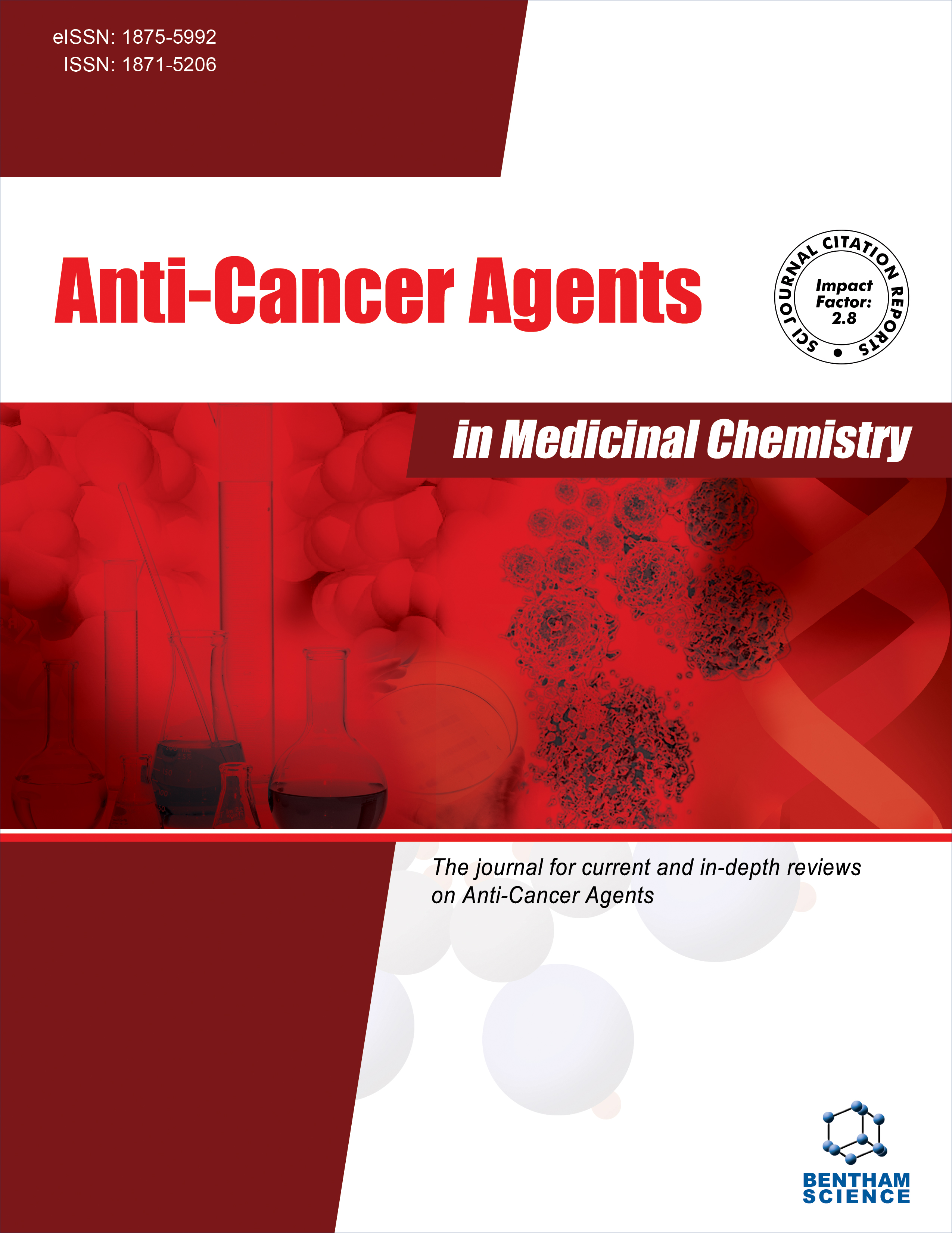-
oa Role of Mismatch Repair and MGMT in Response to Anticancer Therapies
- Source: Anti-Cancer Agents in Medicinal Chemistry, Volume 8, Issue 4, May 2008, p. 368 - 380
-
- 01 May 2008
Abstract
Tumor resistance to cytotoxic chemotherapy drugs and their toxicity to normal cells are major clinical obstacles to anticancer therapy effectiveness. Alterations in various DNA repair pathways play a key role in the development of both mechanisms of drug resistance and toxicity. Since deregulation of the DNA damage response and alterations in DNA repair pathways are relatively common in human cancer, the knowledge of these alterations in cancer cells would be an important predictive factor for the clinical response to chemotherapy and a useful guide in designing an appropriate therapeutic strategy. This review is focused on the mismatch repair (MMR) pathway and the O6-methylguanine-DNA-methyltransferase (MGMT) repair protein. In particular, we examine how inactivation of these DNA repair mechanisms might affect the response of tumor cells to chemotherapy, with a special emphasis on agents inducing methylation and oxidative DNA damage and interstrand DNA cross-links (ICLs). In addition, we provide novel experimental evidence indicating that MMR is required for efficient repair of ICLs via stabilization of RAD51 containing repair intermediates. Finally, we discuss possible emerging therapeutical strategies for treating MMR-defective tumors.


